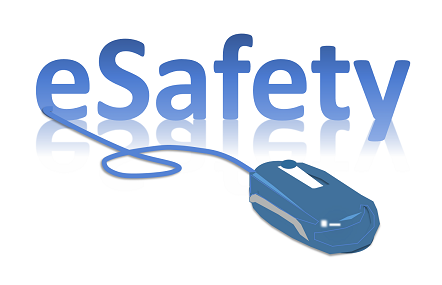Safeguarding News February 2022
SAFEcic is also accepting many more bookings for its face to face safeguarding training and audit services. There is also a packed calendar of blended learning events available to book for your organisation. The courses run regardless of the COVID situation and are very cost effective.

SAFEcic is also pleased to share the work of LawWorks, an organisation that can match your charity / not-for-profit organisation with an experienced lawyer who will give free legal advice. You will be eligible if you support vulnerable or disadvantaged individuals based in England and Wales; if your income is less than £500,000; and if your query relates to one of the areas of law listed below. Do check the eligibility criteria before applying for support.
General areas of support include: Intellectual Property; Employment; Property; Tax; Commercial/Contract; Insurance; Insolvency; Data Protection; Defamation; and Company Law. So, you might apply to LawWorks for a lease review, to update your articles of association, if your organisation has a dispute, if you want a contract reviewed, or to ensure that you are UK GDPR compliant.
SAFEcic Blended Learning Training Calendar
Leading on Child and Adult Safeguarding
Safeguarding Training, Leading on Child and Adult. Online course plus Zoom
Wed, 23 March 2022
10:30 – 12:00 GMT
Safeguarding Training, Leading on Child and Adult. Online course plus Zoom
Tue, 5 April 2022
10:30 – 12:00 BST
Safeguarding Training, Leading on Child and Adult. Online course plus Zoom
Tue, 10 May 2022
10:30 – 12:00 BST
Safeguarding Training, Leading on Child and Adult. Online course plus Zoom
Wed, 15 June 2022
10:30 – 12:00 BST
Safeguarding Training, Leading on Child and Adult. Online course plus Zoom
Tue, 12 July 2022
10:30 – 12:00 BST
Safeguarding Training, Leading on Child and Adult. Online course plus Zoom
Wed, 17 August 2022
10:30 – 12:00 BST
Safeguarding Training, Leading on Child and Adult. Online course plus Zoom
Wed, 21 September 2022
10:30 – 12:00 BST
Safeguarding Training, Leading on Child and Adult. Online course plus Zoom
Wed, 9 November 2022
10:30 – 12:00 GMT
Safeguarding Training, Leading on Child and Adult. Online course plus Zoom
Tue, 13 December 2022
10:30 – 12:00 GMT
Standard Child and Adult Safeguarding
Safeguarding Training, Standard Child and Adult. Online Course plus Zoom
Wed, 25 May 2022
10:30 – 12:00 BST
Safeguarding Training, Standard Child and Adult. Online Course plus Zoom
Tue, 5 July 2022
10:30 – 12:00 BST
Safeguarding Training, Standard Child and Adult. Online Course plus Zoom
Tue, 27 September 2022
10:30 – 12:00 BST
Safeguarding Training, Standard Child and Adult. Online Course plus Zoom
Wed, 23 November 2022
10:30 – 12:00 GMT
Safeguarding: Trustees’ legal responsibilities
Safeguarding: Trustees' legal responsibilities. Online Course plus Zoom
Thu, 31 March 2022
10:00 – 11:30 BST
Safeguarding: Trustees' legal responsibilities. Online Course plus Zoom
Tue, 24 May 2022
10:00 – 11:30 BST
Safeguarding: Trustees' legal responsibilities. Online Course plus Zoom
Thu, 14 July 2022
10:00 – 11:30 BST
Safeguarding: Trustees' legal responsibilities. Online Course plus Zoom
Tue, 20 September 2022
10:00 – 11:30 BST
Safeguarding: Trustees' legal responsibilities. Online Course plus Zoom
Thu, 8 December 2022
10:00 – 11:30 GMT
Safer Recruitment Training. Online course plus 2 Hr Live Online training
Thu, 7 April 2022
10:00 – 12:00 BST
Safer Recruitment Training. Online course plus 2 Hr Live Online training
Tue, 14 June 2022
10:00 – 12:00 BST
Safer Recruitment Training. Online course plus 2 Hr Live Online training
Thu, 15 September 2022
10:00 – 12:00 BST
Safer Recruitment Training. Online course plus 2 Hr Live Online training
Tue, 29 November 2022
10:00 – 12:00 GMT
SAFEcic's free hub resources by setting have been relocated to their new home and are now available through the SAFEcic.co.uk main menu. Alternately you can bookmark the links below:
Education | Dental | Charities | GP & Primary Medical Services | Fath Groups | Entertainment & Leisure | Working Overseas |
Legislation & Bills
Bills
The government pledges commitment to improving accessibility for deaf people across the country by backing a vital Bill which will see British Sign Language (BSL) become a recognised language.
The British Sign Language Bill, a Private Member’s Bill introduced by Rosie Cooper MP, signals promotion and facilitation of BSL when making public service announcements, encouraging other service providers to do the same.
If passed, it would also see the launch of an advisory board of BSL users to:
- offer guidance to the Department for Work and Pensions (DWP) on how and when to use it
- examine how the DWP goes about increasing the number of BSL interpreters
- make sure the Access to Work scheme better meets the needs of BSL users to support them in employment
Passing the Bill will see government commit to improving the lives of deaf people, and will encourage organisations across the nation to take up the BSL mantle, benefitting both themselves and the deaf community.
BSL offers a lifeline to 250,000 Brits who communicate through the visual medium, which consists of a combination of hand gestures, facial expressions and body language.
The Minister for Disabled People has worked closely with Labour MP Rosie Cooper and deaf people’s organisations, such as the Royal National Institute for Deaf People (RNID) and the British Deaf Association (BDA), to ensure the Bill effectively meets the needs of those who will benefit the most.
Backing the Bill is just one of the steps the government is taking to improve the lives of disabled people and those with long-term health conditions across the UK.
Some of the highlights include:
- the Department for Work and Pensions has launched an Access to Work pilot scheme to help ease the transition from university into employment for disabled graduates
- the Department for Business, Energy and Industrial Strategy has launched a consultation on flexible working, which has potential to improve accessibility in the workplace
- the Department for Transport has launched a passenger assistance app to make travelling by train easier for wheelchair users
Legislation
Guernsey
1.A new law will allow Guernsey's court to consider whether consent is affected after the consumption of alcohol or drugs
Guernsey politicians have voted against delaying the change to its new sexual offences law.
The new law will consider whether the consumption of alcohol or drugs prevent consent in cases of rape or sexual abuse.
Guernsey is set to become the first place in the British Isles to have this law when it comes into force in March.
Northern Ireland
2. (Sexual Offences and Trafficking Victims) Bill has now moved to the Consideration Stage in the NI Assembly, Minister Long said: “Since my appointment as Justice Minister, I have made it my priority to legislate to protect the most vulnerable victims.
"Having already brought forward significant new safeguards in the Domestic Abuse and Civil Proceedings Act 2021 and in the Protection from Stalking Bill, the moving of this Bill today represents another important step in delivering a legislative programme that will make our communities safer and provide additional support to victims who have suffered abuse and exploitation.”
The Justice (Sexual Offences and Trafficking Victims) Bill has two core aims:
- to enhance public safety by implementing certain elements of the Report of the Gillen review of serious sexual offence cases and from a review of the law on child sexual exploitation and sexual offences against children; and
- to improve services for victims of trafficking and exploitation.
This Bill includes provisions to address a number of issues that have been prioritised to have the most impact on the experiences of victims; including measures to exclude the public from all serious sexual offence hearings the creation of a new offence of adults masquerading as children online and a new offence of up-skirting and down blousing.
3. New domestic abuse laws have come into force.
Stormont passed legislation making coercive control a specific offence in January last year.
Coercive control includes psychological and financial abuse and non-violent intimidation.
Justice Minister Naomi Long said the new offence was a "milestone" and a "real step change" which would bring with it the potential for longer sentences.
The new offence has come into effect with the launch of a campaign to raise awarenessof the new legislation, including a website where people can find out more about domestic abuse.
Legislation to make stalking criminal in Northern Ireland is also expected to pass its final hurdle at Stormont this week.
Reports, Reviews, Resources, Research and Inquiries

1. The Child Sexual Exploitation by Organised Networks report finds child sexual exploitation is underreported with authorities struggling to keep pace.
Extensive failures by local authorities and police forces mean they are struggling to keep pace with the changing nature of sexual exploitation of children by networks, children are being sexually exploited by networks in all parts of England and Wales in the ‘most degrading and destructive ways’, with many exploited children raped or sexually assaulted repeatedly, over a period of months or even years. The report focused on St Helens, Tower Hamlets, Swansea, Durham, Bristol and Warwickshire, six case study areas that have not already been the subject of well-publicised investigations of child sexual exploitation by networks. During the public hearing, the Inquiry heard harrowing evidence of child sexual exploitation by networks, including evidence in relation to more than 30 children and young people and the institutional response to exploitation of them, as well as victims and survivors, who described their experiences between 2003 and 2011.
This report makes six recommendations, including:
- The strengthening of the criminal justice system’s response by amending legislation to provide a mandatory aggravating factor in sentencing those convicted of offences relating to the sexual exploitation of children.
- The Department for Education and the Welsh Government should update guidance on child sexual exploitation. This should include the identification and response to child sexual exploitation perpetrated by networks and improve the categorisation of risk and harm by local authorities and other institutions.
- Police forces and local authorities in England and Wales must collect specific data – including sex, ethnicity and disability – on all cases of known or suspected child sexual exploitation, including by networks.
The Inquiry has also published its latest quarterly statistics, providing an update across all areas of its work, as well as illustrating the Inquiry’s engagement with victims and survivors over time. Victims and survivors told the Truth Project about the struggles they faced in speaking out, describing fears of stigma or not being believed. Many spoke about the severe impact the sexual abuse has had across all aspects of their lives including relationships, education and work, as well as physical and mental health. For some, the effects have lasted years.The experiences shared also describe changes that survivors hope to see in future, such as better education, greater awareness and more open conversations about the effects of child sexual abuse.
For help and support, you can access information on a range of organisations signposted on their support page
2. Independent Inquiry Child Sexual Abuse (IICSA) has also published the next updates on responses to its recommendations.
The update relates to a range of recommendations from reports including the Interim Report, Children Outside the UK Phase 2, Nottinghamshire Councils, Children in Custodial Institutions, the Anglican Church, the Roman Catholic Church, Child Protection in Religious Organisations and Settings, Accountability and Reparations and Lambeth Council.
The Inquiry’s dedicated recommendations section brings together the 80 recommendations addressed to a range of institutions, including government departments and agencies, made by the Inquiry so far. This section sets out the published responses made by the institutions to whom they are addressed, outlining any additional steps taken and any progress made.
The monitoring of responses to recommendations is part of a formal process established by the Inquiry. We expect institutions to set out how they plan to respond within six months of the recommendation being published, unless stated otherwise.
3. Independent review of the disclosure and barring regime.
Dr Gillian Fairfield, Chairman of the Disclosure and Barring Service (DBS), today welcomed the Home Office review of the disclosure and barring regime, announced by Safeguarding Minister, Rachel Maclean. The DBS fully supports the review, which will look at the framework for criminal record checks (also known as DBS checks) and for barring individuals from working with vulnerable groups including children. The intention to undertake a review was detailed in the government’s strategy to tackle violence against women and girls, which was published in July 2021.
Worthy of Note

1. Further plans to level up opportunities for every child in education
New measures to make sure children are getting the quality of education they deserve are being announced today, as the government continues its drive to level up opportunities for every child and family across the country.
The government has confirmed it will go ahead with the creation of a register for children not in school at the earliest available legislative opportunity, alongside plans to give schools greater support on behaviour and rebuild
The government is also providing greater support on behaviour for headteachers to create calm, orderly, safe and supportive environments for children and young people to thrive in. A consultation on revised guidance will open today to give headteachers clearer support on maintaining that positive culture, and advice on responding to behaviour incidents online.
The flagship School Rebuilding Programme, announced by the Prime Minister in 2020 and with £2bn to be invested in 100 rebuilds already, is also entering its most intensive phase. Applications are being invited for the first time for the selection of up to 300 of the programme’s 500 total projects this decade, transforming the lives of hundreds of thousands of students across the country, providing facilities fit for the future of education.
2. West Midlands chosen for government pilot for ParentWise which aims to build parents’ and carers’ awareness of some of the things their children could face growing up. It has been designed to help them spot the signs that something could be wrong and empower and reassure them to act if they are worried. Parents and carers in the area will have access to help and support, as well as advice on what to do when noting a change in a child’s behaviour.
These include:
- alcohol and drugs
- bullying
- child criminal exploitation and ‘county lines’ (a term used to describe the criminal exploitation of children for the purpose of selling drugs)
- child sexual abuse and exploitation
- exploitation by extremist or radical influences
- knife harm
- online safety
- sex and relationships
Findings will inform the government’s approach to supporting parents and carers to keep children safe. Birmingham will also benefit from targeted education support as part of the rollout of 10 ‘SAFE’ (Support, Attend, Fulfil, Exceed) taskforces in ‘hotspot’ areas, where incidents of serious youth violence are highest. This taskforce will be led by local schools, bringing headteachers together to support vulnerable young people, and avoid them becoming involved in county lines and criminal activity. The Missing People’s SafeCall service provides confidential, specialist advice and support to young people and their families/carers who are affected by county lines exploitation."
eSafety
1. Online safety law to be strengthened to stamp out illegal content. Digital Secretary Nadine Dorries has announced extra priority illegal offences to be written on the face of the bill include revenge porn, hate crime, fraud, the sale of illegal drugs or weapons, the promotion or facilitation of suicide, people smuggling and sexual exploitation. Terrorism and child sexual abuse are already included. Previously the firms would have been forced to take such content down after it had been reported to them by users but now they must be proactive and prevent people being exposed in the first place. It will clamp down on pimps and human traffickers, extremist groups encouraging violence and racial hate against minorities, suicide chatrooms and the spread of private sexual images of women without their consent. Naming these offences on the face of the bill removes the need for them to be set out in secondary legislation later and Ofcom can take faster enforcement action against tech firms which fail to remove the named illegal content. Ofcom will be able to issue fines of up to 10 per cent of annual worldwide turnover to non-compliant sites or block them from being accessible in the UK. Three new criminal offences, recommended by the Law Commission, will also be added to the Bill to make sure criminal law is fit for the internet age.
“The criminal law should target those who specifically intend to cause harm, while allowing people to share contested and controversial ideas in good faith. Our recommendations create a more nuanced set of criminal offences, which better protect victims of genuinely harmful communications as well as better protecting freedom of expression.
2. Cyber Explorers aims to introduce 30,000 11 to 14-year-olds to important security concepts such as open-source intelligence, digital forensics and social engineering. The move is part of government plans to create a highly-skilled and more diverse pipeline of talent for the UK’s fast-growing and in-demand cyber security industry. Along with the help of both the friendly Cyber Ranger and the knowledgeable Cyber Squad, students will explore a variety of scenarios and collect virtual badges for making smarter choices online. Using characters, quizzes and activities, the free website will show students how digital, computing and cyber skills can lead to a range of career paths, including social media content creation, sports technology and medical research. Brand new content and characters will launch over the coming weeks.
3. A day in the life of the IWF’s child abuse image taskforce
The Internet Watch Foundation is a specialised taskforce unit which assesses and grades some of the worst child sexual abuse material in the world. The people on this team view images from the UK Government’s Child Abuse Image Database (CAID). They are the only non-law-enforcement agency allowed to do this.
The taskforce team works part-time – and their exposure to the videos and images they are grading is strictly limited to four hours a day. The team works with the IWF’s own breakthrough IntelliGrade hashing tool – meaning their work can have a real impact all over the globe.
4. Dating Online? Play it safe when you meet face-to-face
- Plan it. Say it. Do it.
It’s your date. Agree on what you both want from it before you meet up. Don’t feel pressured to meet before you’re ready or for any longer than you’re comfortable with – a short first date is fine. - Meet in public. Stay in public.
The safest plan is to meet somewhere public and stay somewhere public. Make your own way there and back and don’t feel pressured to go home with your date. If you feel ready to move to a private environment, make sure your expectations match your date’s. - Get to know the person, not the profile.
The way people interact online isn’t always the same face-to-face. Don’t be offended if your date is more guarded when meeting in person or if things don’t progress as fast face-to-face. - Not going well? Make your excuses and leave.
Don’t feel bad about cutting a date short if you’re not keen. You don’t owe the other person anything, no matter how long you’ve been chatting or what’s been suggested. - If you’re raped or sexually assaulted on your date, help is available.
No matter what the circumstances, sexual activity against your will is a crime. Police and charities are here to help and support you.
Readily accessible information for victims of sexual assault, however recent, can be found on the government’s website Sexual Abuse Support
Scams

“The Online Rip-Off Tip-Off” 7 out of 10 people have experienced potential rip-offs online, worrying new CMA research reveals
In a poll of over 2,000 UK adults:
- 7 out of 10 had experienced misleading online practices
- 85% believed businesses using them were being dishonest with their customers
- And 83% were less likely to buy from them in the future
The aim of the Online Rip-off Tip-Off campaign is to make consumers aware of these misleading online practices and provide tips on how to avoid them. If people in England and Wales want further advice or wish to report a concern they should contact Citizens Advice. Consumers in Scotland should contact Advice Direct Scotland, and shoppers in Northern Ireland should contact The Consumer Council.
The Reason to Remain Vigilant in All Aspects of Safeguarding

1. Care home worker caught on camera raping woman, 99
A "despicable" care home worker was caught raping a 99-year-old woman with dementia on a hidden camera that had been installed by worried relatives.
Her family fitted the device after her behaviour changed and she had begged: "Don't leave me, they will hurt me," the Crown Prosecution Service said.
The "horrified" relatives watched as 48-year-old Phillip Carey attacked her.
Carey, of Blackpool, pleaded guilty at Preston Crown Court and was jailed for life. He will serve at least 10 years.
He also admitted sexual activity with a person with a mental disorder impeding choice, and sexual activity in the presence of a person with a mental disorder by a care worker.
After Carey was sentenced, the victim's family said: "We noticed her behaviour had changed. She became withdrawn, wouldn't hug or kiss us and she didn't want us to go when we were leaving and said things that worried us, suggesting she would be punished.
"We were concerned maybe someone was being unkind or too rough with her so we decided to install a hidden camera in her room so we could see what was happening.
"We were shocked and horrified, never imagining we would see her being abused and raped in her own room."
They contacted police and Carey, of Keswick Road, was arrested.
The family said it had been "very distressing" for all the family as they "struggle to come to terms with what happened" at the Blackpool care home.
"Our elderly relative has gone through a horrific ordeal at the hands of someone we trusted to care for her," they said.
They also praised police for their support and advised other people with elderly loved ones in care to "listen to what they are saying and be aware of behaviour changes".
"If you think there could be something happening to them do something about it," they added.
The family said they were "thankful" Carey was given a life sentence and "will not be allowed to harm anyone else".
A Lancashire Police spokesman said Carey "worked in a position of trust which he abused in the most despicable way".
2. A crime gang who coached and exploited teenage girls into a UK-wide shoplifting scam have been convicted of modern slavery offences. Ringleader Isaiah Olugosi, 38, recruited, trained and transported teenage girls around the country to commit refund fraud in High Street stores using fake receipts. They would place fake barcodes on items to pay a much cheaper price, before later asking for a refund at the full price. A phone bought for £20 might get a refund of £120. An electric shaver bought for £27 might be refunded at £110. Olugosi’s wife Holly Chapman, 31, admitted offences arising from money from the proceeds of this conspiracy but denied knowing where the money was coming from, although she admitted she suspected it was proceeds of crime. The girls were depositing cash in her accounts from the Tesco refunds.The conspiracy made £500,000 in just over two years but the true amount is likely to be far higher. CPS Proceeds of Crime lawyers will seek to get back as much stolen money as possible. Between 2018, 2019 and the first few months of 2020 the girls, who were around 14 years old on average, were committing a fraud every week somewhere across the country. They were paid for their crimes, and often offered perks like overnight stays and takeaway meals.If they were ever stopped by security they were left to deal with the consequences and in some cases this meant them being abandoned many miles from home. Olugosi later trained up Baran Karamagara, 22, to take over the day-to-day-management of the operation and the routes as it had grown too large for one person to run. He was involved in driving the girls around.When two girls were finally arrested with Baran Karamagara, the CPS worked with Northamptonshire police to advise no further action against them and instead evidence of their involvement be used as further evidence of Karamaga and the group’s criminality.
And Finally
The new Help Us Help You – Cervical Screening Saves Lives campaign has launched as nearly 1 in 3 don’t take up screening offer. Around 2,700 women are diagnosed with cervical cancer in England each year and approximately 690 women die from the disease – around two deaths every day.[2] Previous estimates suggest screening prevents 70% of cervical cancer deaths, but 83% of deaths could be prevented if everyone attended regularly. the campaign will include TV advertising, video on demand and social media, partnerships, together with national and regional PR activity. It also includes activity targeted to ethnic minority (Black and South Asian) and LGBTQ+ communities, as data shows these groups can experience specific barriers to taking up screening. For further information about cervical screening, please visit the NHS website






